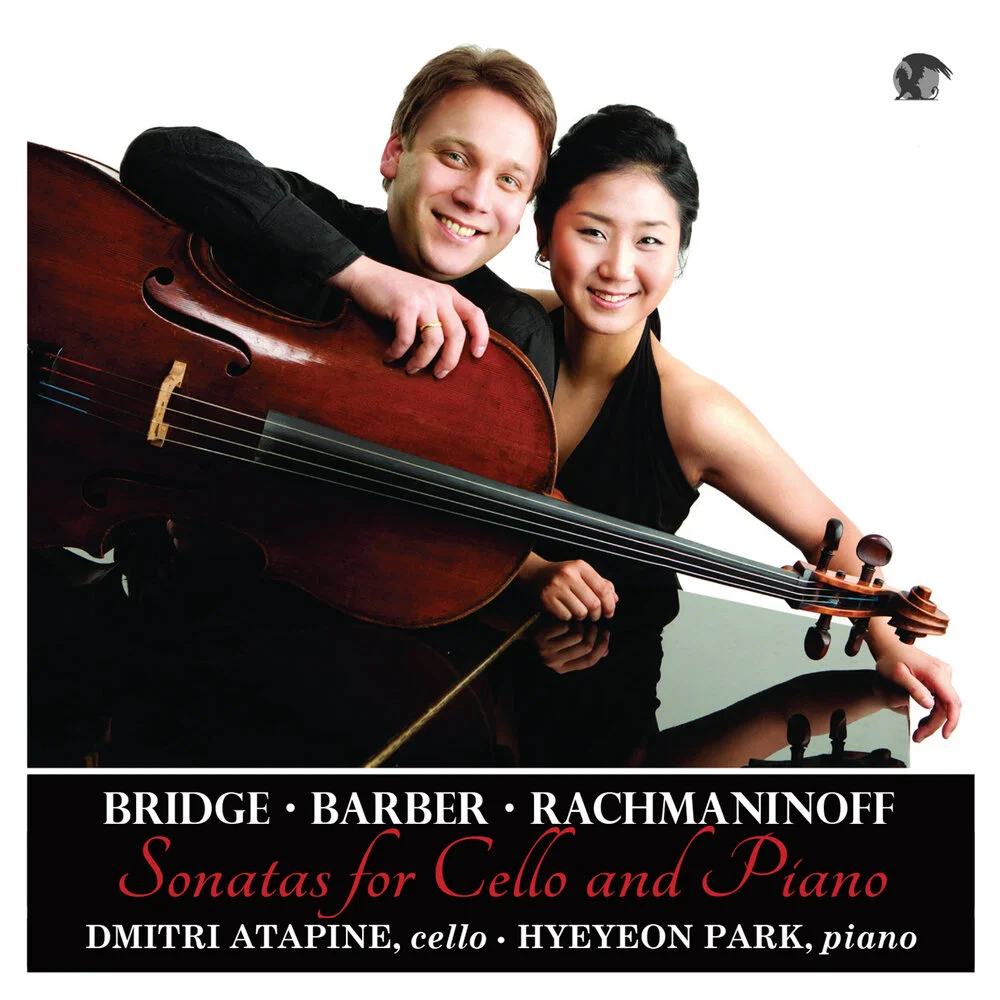Bridge, Barber, Rachmaninoff: Sonatas for Cello and Piano (Dmitri Atapine & Hyeyeon Park)
Following up their critically acclaimed premiere recording of Lowell Liebermann’s complete cello works, cellist Dmitri Atapine and pianist Hyeyeon Park present their new CD of Cello Sonatas by Bridge, Barber, and Rachmaninoff.
Following up their critically acclaimed premiere recording of Lowell Liebermann’s complete cello works, cellist Dmitri Atapine and pianist Hyeyeon Park present their new CD of Cello Sonatas by Bridge, Barber, and Rachmaninoff.
Following up their critically acclaimed premiere recording of Lowell Liebermann’s complete cello works, cellist Dmitri Atapine and pianist Hyeyeon Park present their new CD of Cello Sonatas by Bridge, Barber, and Rachmaninoff.
Frank Bridge (1879-1941)
Sonata for Cello and Piano in D minor, H.125
1 Allegro ben moderato
2 Adagio ma non troppo — Molto allegro e agitato
Samuel Barber (1910-1981)
Sonata for Cello and Piano in C minor, Op.6
3 Allegro ma non troppo
4 Adagio — Presto
5 Allegro appassionato
Sergei Rachmaninoff (1873-1943)
Sonata for Cello and Piano in G minor, Op.19
6 Lento — Allegro moderato
7 Allegro scherzando
8 Andante
9 Allegro mosso
Following up their critically acclaimed premiere recording of Lowell Liebermann’s complete cello works, cellist Dmitri Atapine and pianist Hyeyeon Park present their new CD of Cello Sonatas by Bridge, Barber, and Rachmaninoff. “Here are three composers, three cultures, and three distinct circumstances surrounding the composition of each of the works presented on this recording. Sergei Rachmaninoff’s unchecked Russian expressivity infused with personal struggle. Frank Bridge’s solemn English lyricism,which remains affected by the airs of World War I. Samuel Barber’s adventurous pride and grandeur, which still contain shadows of America’s Great Depression. Yet the three works share a certain semblance. They all are products of what we can call the “Romantic undercurrent” – a world unswayed by the shudders of innovation zipping through the hearts and minds of many a composer of the time – and yet imbued with a sense of immediate need for communication, opening the composers’ hearts to the listener.”






